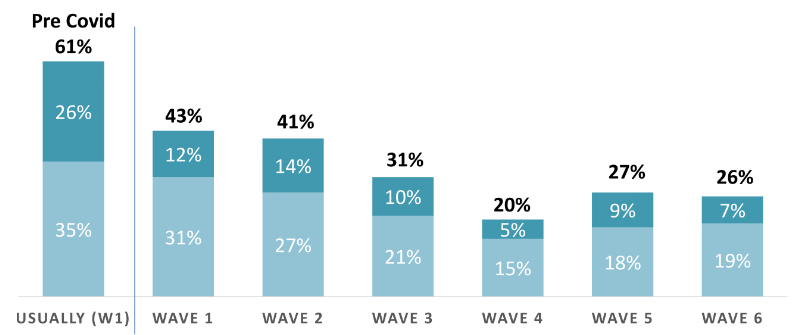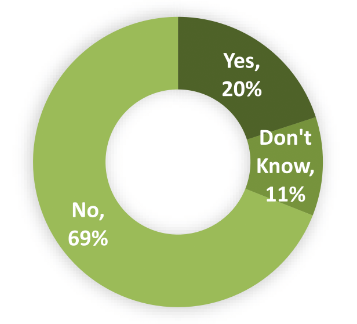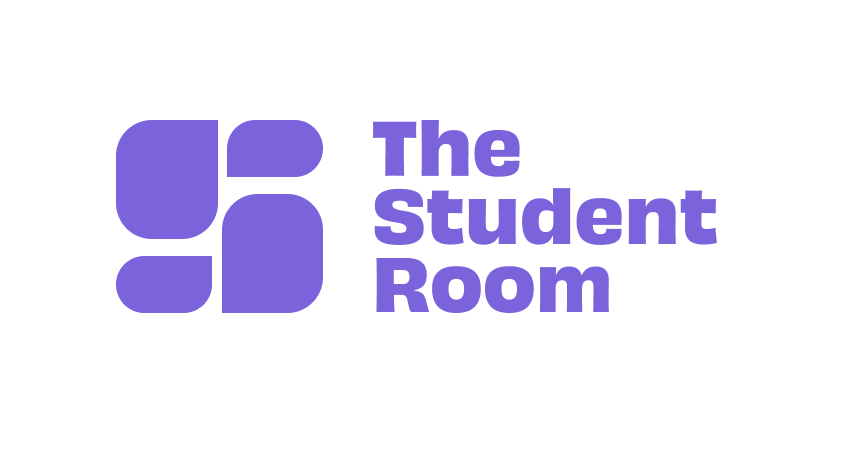The Covid Cohort
2022 applicants – where are they now?
Assets from webinar held on 23 November 2021
What the latest research reveals about 2022 university applicants.
Watch the webinar recording:
The Covid Cohort:2022 applicants – where are they now?
Presenters:
Barbara Bradshaw, Victoria Littler and Beth Wiles
Methodology: Quantitative tracking study
Navigating Changing Options (NCO)
We conduct regular large-scale online tracking surveys with registered members of the TSR community and site visitors. This webinar covers findings from Waves 5 and 6. Wave 7 will be announced soon and will track 2022 entry students in Year 13, and 2023 entry students in Year 12.
Here's a glimpse at what was going on while the surveys were live:
Wave 5 (12th - 29th June 2021)
Summer Term
2022 cohort in Year 12; 2023 cohort in Year 11
- 31M have had two vaccines (41M have had one)
- Plans to relax restrictions delayed until July
- Euro 2020 football tournament, Health Secretary Matt Hancock resigns, G7 summit completed
680 Year 12s surveyed (2022 entry)
Wave 6 (10th - 24th October 2021) - not yet published
Autumn Term
2022 cohort in Year 13; 2023 cohort in Year 12
- 45M have had two vaccines, 49M have had one and 4M have had a booster
- Covid-19 cases rising
- MP Sir David Amness killed; Covid test lab suspended (wrong results); reports of spiking by injection
344 Year 13s surveyed (2022 entry)
Please note: NCO reports are free and exclusive for UPP clients (Find out more about UPP)
Previous NCO waves and key events which coincided with the research
Wave 1
April 2020
885 Year 11s (2022 cohort)
- GCSEs cancelled (CAGs)
- Lockdown in UK
- Schools close
Wave 2
June 2020
1,554 Year 11s (2022 cohort)
- Schools submit CAGs
- Support bubbles
- Non-essential retail re-opens
- Test and trace
Wave 3
October 2020
617 Year 12s (2022 cohort)
- GCSE results determined by CAGs
- Tier regulations in place
Wave 4
February to March 2021
766 Year 12s (2022 cohort)
- Lockdown 3
- Vaccines
- Return to classroom learning
Key concerns for 2022 applicants
By October, many of this cohort's key concerns from March had reduced. However, some were still worried about taking exams:
“The fact that I’ve never taken a real public exam in my life, and I’m expected to do my A levels without experience and get top grades in the process is absolutely terrifying and very unsettling.”
Q: Which, if any, of the following are you worried about? (Please select all that apply)
Motivating myself to work
March
October
Catching up on lost teaching time
March
October
Missing face-to-face university open days
March
October
Missing UCAS/HE fairs
March
October
Top concerns for 2022 applicants in Wave 6 (October)
We are seeing a return to more normal concerns, like getting high enough grades and getting into university. However, students do still have concerns relating to the pandemic:
- Getting the grades I need (78%)
- Sitting exams/assessments (74%)
- Getting into my chosen university (71%)
- Getting onto my chosen course (62%)
- Uncertainty around grading (57%)
- Uncertainty around future lockdowns (46%)
- Losing further teaching time (41%)
- Not having the resources to work from home (e.g. space, technology) (21%)
“ With last year's exam results being teacher predicted the results were high. This resulted in universities upping their entry requirements which means I couldn’t apply to the universities I fell in love with.”
Access to devices for online study
Q: Thinking back to lockdown, what device did you primarily use for your online study?
Q: Was it your own, or did you have to share with someone else who was also studying/working from home?

Inequality - 12% of free school meals (FSM) respondents relied on mobile phones compared with 5% of all respondents. 28% of FSM were sharing a device with someone else (vs 14% overall). However, due to the online methodology for this research, the true inequality gap could be even wider.
“I do not have a device to use at home and have to use my phone in order to study which makes life quite hard. I try to spend a lot of time after school in order to use the school computers but then find myself coming home quite late and not having much time to revise.”
Mental health
Q: How would you describe your mental health...Usually/At the moment? (5 point scale)
The pandemic has been significant for 2022 applicants' mental health
Mental health has seen a sharp and sustained decline since the pandemic started. It has recovered a little since the beginning of 2021, but in October only 26% 2022 applicants described their mental health positively, compared with 61% pre-covid.


Q: To what extent do you agree or disagree with the following statements? (5 point scale)
2022 applicants are feeling disconnected and unable to cope with uncertainty
The outlook has improved slightly since the start of the pandemic, but in October only around half of students said they knew how to connect with peers, and less than half felt they could cope with uncertainty. Only 64% reported that they have a support network they can reach out to.
% agree/
strongly agree
Wave 1
April 2020
Wave 4
March 2021
Wave 6
October 2021
80%
56%
54%
51%
40%
42%
65%
58%
64%
Impact on their futures
Q: Do you have any reservations about applying to university? (multiple choice)
95% have reservations about applying to university
Cost of living at university
Not being able to keep up with the work
Future employability
Uncertainty around online learning
Uncertainty around covid-19
Not getting the university experience
Not getting value for money
Moving away from home
Degree not being valued
None of the above
Subject choices
82% said their subject choice was unaffected
Reasons for subject changes:
- Time to reflect
- Impacts of home learning
- Job security
- Move away from STEM
“
It made me rethink all the choices I had and gave me more time to look at other jobs I could do. ”
Q: Has covid-19 impacted your choice of subject?

Q: Has covid-19 impacted your choice of university?

University choices
69% said their university choice was unaffected
Reasons for university changes:
- University's response to Covid-19
- Online learning
- Lack of face-to-face visits
- Staying close to home
“
When I saw the way certain universities treated students during lockdowns and closures, I was put off of some universities I had previously wanted to apply for. ”
Open days - virtual and in-person
Should you keep running virtual events?
95% of you said you saw virtual open days as part of your long-term strategy (webinar live poll)
The data shows students still want them too
42% plan to attend more virtual open days
57% plan to attend more on-campus open days
24% plan to attend neither
Q: How many [virtual and on-campus events] have you attended or do you think you will attend?
Virtual events
- 0 - 14%
- 1 - 13%
- 2 -19%
- 3 - 18%
- 4+ - 37%
Face-to-face events
- 0 - 28%
- 1 - 20%
- 2 - 22%
- 3 - 14%
- 4+ - 16%

Q: Do you plan to attend any of the following in the future?
Virtual/online
On-campus/in-person
Neither
Year 13
Year 12
How students feel about attending open day events
Q: How comfortable do you currently feel about attending mass gatherings, such as university open days and HE fairs?

65% quite or very comfortable
18% not at all or not very comfortable
Those moving away for university were more likely to feel very comfortable (29%) than those staying near home (11%)
Top ways to make prospective visitors feel more comfortable: good ventilation, require masks, require lateral flow tests, social distancing, small bookable sessions
What students think of open day events
Q: Which of the following words, if any, would you use to describe your experiences of attending Open Day(s) so far?
Virtual
On-campus
Interesting
Encouraging
Organised
Efficient
Straightforward
Complicated
Stressful
Disorganised
Boring
Off-putting
What students want from open days

In-person events are about understanding the physical environment (campus, local area, housing) and getting a feel for what it would be like to live there; virtual events are more about convenience, trying out the course/teaching, and gathering information.
Top choices for virtual events - specific course information, hear about student life/activities, ask questions, taster teaching e.g. lecture or workshop, available on demand
“
To find out more about the ways we will be taught (especially with COVID now) and some examples of what we will learn on our course ”
Top choices for in-person events - get a feel for campus/city, see accommodation, meet current students, ask questions, meet academics, understand where everything is, hear about student life/activities
“
The general environment/ vibe of the university and city in general. Seeing the facilities and meeting the teaching staff. ”
WEBINAR LIVE POLL
We asked you...
Which event type performs better at converting visitors into applicants?
Virtual open days had a better conversion rate
Physical open days had a better conversion rate
About the same
Don't know - no data
Don't know - only did physical events OR only did virtual events
Applying to university

Q: Do you feel you have enough information to make a decision about which universities to put on your UCAS application?

66% Yes (those achieving grades of AAA and above more likely to say yes)
Almost a quarter do not have all the information they need
What do applicants want information about?
Course info (modules, entry requirements)
Flexibility of entry requirements
Interviews/auditions
Accommodation
Applications/personal statements
Info about the uni (facilities, support, SU)
City/campus
Campus open day or tour
Work experience
Virtual open days
Something else
None of the above
Those who didn’t have enough information to make their choices were more like to need:
• Course info (86%) • Application/ personal statement guidance (74%) • Info about on-campus open days (59%)
University prospectus preferences

Q: How do you want to access university prospectuses?
95% - want a prospectus
55% - want an online prospectus
41% - want a printed prospectus
Key takeaways
-
- Students' concerns are starting to shift back towards normal - getting the grades, sitting exams, and getting into university top the list
- Free school meals students are less likely to have access to devices for home study, and more likely to be sharing a device.
- Mental health has been declining since the pandemic. It is up slightly for Wave 6, but still well below pre-covid levels. Many students are finding it difficult to build a support network or cope with uncertainty.
- 95% have reservations about applying to university - mainly the concerns are about the cost of living, keeping up with the work, and employability. Almost a quarter of applicants say they need more information from universities.
- For the majority, covid has not affected their application decision (however, 11% said it impacted subject choice; 20% said it impacted university choice).
- There is still demand for virtual open days (37% say they will attend 4+ virtual open events) - but virtual open days are more likely to be seen by prospective applicants as "boring", "stressful" or "off-putting" than in-person events.
- 95% wanted university prospectuses (online versions were more popular than printed).


